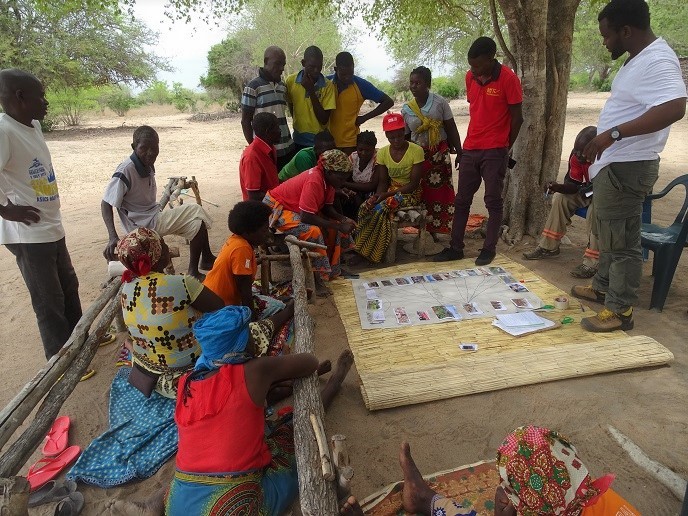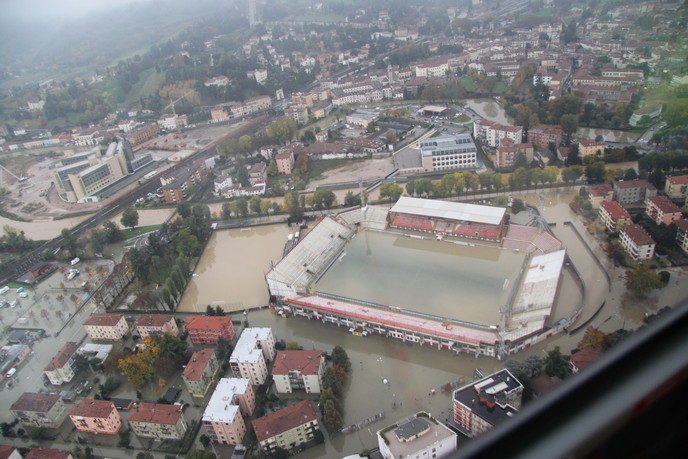How risk perception and uncertainty can improve climate change policies
The RISICO project significantly advanced the way we conceptualise, model and frame the climate change policymaking process, by focusing on the central role of uncertainty. “Although it is beyond dispute that uncertainty is pervasive in all aspects of climate change, the vast majority of research assessing the climate ignores uncertainty, largely because of the technical complexities involved,” says project coordinator Valentina Bosetti. The project consortium studied people’s perception of climate change and how their preferences and attitudes towards risk and uncertainty affect this perception. In addition to lab and field experiments, expert elicitations and surveys, researchers also collected data from different countries through a one-year survey to study how these attitudes about climate change may vary from one person to another, from one country to another, and from one day to the next.
Perceived risks
In the context of climate change, many elements that are key to the problem, from the severity of related damages to the cost of mitigation, are affected by deep uncertainty. “In order to plan and design policies we have to do our best to quantify these uncertainties,” Bosetti explains. “Within the project several expert elicitations have shed light on probabilities associated to issues as diverse as alternative future greenhouse gas emissions scenarios or the costs of direct air capture technologies.” How people perceive these risks was also investigated by RISICO, through means of surveys and interviews, as perception is as relevant as the actual probabilities of an event in shaping individuals’ actions. “If most people perceive some risks as more dreadful, they will make a bigger effort to avoid and insure against them, and this may not necessarily be in their best interest,” observes Bosetti. Therefore, a 1-year survey of citizens is currently underway in 6 cities located in 3 countries and continents (Beijing, Shanghai, Milan, Rome, New York and Dallas). The findings shed light on the differences and similarities in the perception of climate change and other key risks to society and how they are related. Researchers also studied individual behaviours in the face of deep uncertainties using laboratory experiments and found that a consistent portion of individuals is ambiguity averse and takes decisions consistent with such preferences. According to Bosetti: “This is also true when the sample of individuals studied are climate policymakers. Shedding light on the way individuals translate risks and uncertainty into decisions is key to suggesting protocols for policymaking.”
Significant benefits
Key results included elucidating international climate negotiators’ assessment of the long-term implications of the Paris Agreement. This is a major step forward and provides an important benchmark for when new assessments are conducted in future years. Another important finding showed that policymakers’ preferences in the face of ambiguity are very similarly distributed to those of a general sample of citizens. Bosetti observes: “We discovered that the way uncertainty is communicated can have important implications on how people perceive climate information and this may even matter more than the background knowledge of the individuals themselves.” Quantifying key uncertainty is often controversial as it forces experts to assign probabilities to future events. “However, when in its absence we would be left with simply no number to perform our analyses, it can be very useful when experts try to narrow down the scope of uncertainty and it allows us to perform robust analyses,” Bosetti concludes. RISICO will benefit policymakers, scientists and science communicators, climate change negotiators and the general public.
Keywords
RISICO, uncertainty, climate change, risk, policy, Paris Agreement, science communicators







